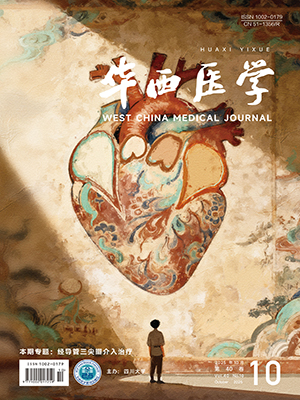| 1. |
郭敏, 周晓英, 宋丹, 等. 互联网 + 时代的我国医院微信信息服务研究. 图书与情报, 2015(4): 19-25.
|
| 2. |
中国互联网络信息中心. 2013-2014 年中国移动互联网调查研究报告. (2014-08-26)[2015-05-05]. http://www.cnnic.net.cn/hlwfzyj/ hlwxzbg/ydhlwbg/201408/P020140826360212699278.pdf.
|
| 3. |
冯丹娃. 自媒体时代文化产品营销革命. 北方论丛, 2013(6): 159-161.
|
| 4. |
赵亿. 从微信公众号看纸媒与新媒体的融合——以《扬子晚报》官方微信公众号为例. 传媒, 2014, 5(10): 36-38.
|
| 5. |
刘景景, 杨淑娟, 沈阳. 2014 年传统媒体微信公众号分析. 新闻与写作, 2014(12): 16-19.
|
| 6. |
中国电子商务研究中心. 2014 年微信公众平台发展现状报告. (2014-09-13)[2015-05-05]. http://www.docin.com/p-913685927.html.
|
| 7. |
马红岩. 基于内容营销的微信传播效果研究. 商业研究, 2014(11): 122-129.
|
| 8. |
李敏, 王珏, 何媛. 自媒体时代医院微信平台建设的实践与思考. 现代医院管理, 2015, 13(12): 80-82.
|
| 9. |
张振伟, 李响. 我院医院文化建设的实践与探索. 中国医院管理, 2010, 30(9): 62.
|
| 10. |
朱建华. 微信公众号运营效果冷热两重天. 全媒体时代, 2014(12): 70-73.
|
| 11. |
张德申, 秦红亮. 微信公众平台开发——订阅号功能开发研究. 电子技术与软件工程, 2013(19): 65-67.
|
| 12. |
彭立生, 罗玫, 范小洪, 等. 深圳市二甲以上医院微信使用情况分析. 现代医院, 2015, 15(5): 136-139.
|
| 13. |
彭立生, 罗玫, 范小洪, 等. 广东三甲医院微信使用情况调查研究. 现代医院, 2015, 15(4): 142-145.
|
| 14. |
徐杰. 微信公众平台在医院健康教育中的应用. 中国健康教育, 2015(1): 86-87.
|
| 15. |
夏玉兰, 叶洋鹰, 徐慧, 等. 浅谈微信公众平台在医院的推广及运用效果. 中国民康医学, 2015, 27(9): 109-110.
|
| 16. |
程雄, 黄毅. 城市公立医院运用互联网思维进行改革的实践. 华西医学, 2016, 31(10): 1766-1769.
|




